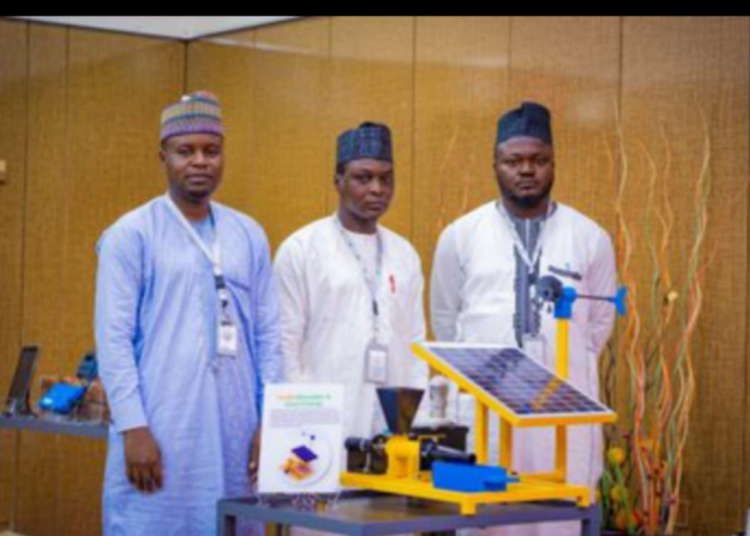Nigerian researchers have developed four prototype innovations to address different challenges in the country.
The innovations focused on hunger, poverty, quality education and responsible consumption and production.
The prototypes have been developed by scientists from members of Nigerian academia from public higher institutions, under the Research for Impact (R4i), an initiative of Tertiary Education Trust Fund (TETFund) in collaboration with Innov8 Hub.
The lecturers, numbering 18, were selected to participate in the initiative, afterwhich they were divided into four teams that developed prototypes of their innovative solutions to challenges in the Nigerian society.
Team one, called ‘Responsible Consumption and Production’ designed a smart grain storage using an approach that prevents pest infestation of stored grains; keeping them safe for consumption while Team 2 called ‘No Poverty’ designed a Float House named “Gimbaliya,” constructed using low density material that float on water.
Team 3 ‘zero hunger’ developed an Automated Ultrasonic Solar-Powered Sprayer and broad-spectrum bio-pesticides for control of pests in an eco-friendly manner, anchored on SDG 2-Zero Hunger.
Team 4 ‘Quality Education,’ desiged an innovation, ‘E-Access,’ a mobile application that caters for lecturers who develop lecture materials, and students in need of lecture materials.
Speaking at the closing ceremony of the workshop in Abuja on Friday, the executive secretary of TETFund, Arch. Sonny Echono, encouraged the 18 participants to be change agents when they go back to their various institutions.
He urged them to make the right contribution and see that education become impactful, set personal goals and ignore the noise around them in order to excel in whatever they do.
The executive secretary further said Nigeria must move from the mindset that God will give them everything.
“The Research for Impact Initiative is logical response to our desire to solve societal problems, to address the challenges we currently face in our country in terms of generating revenue.
“Our country is going through very difficult times, we have one of the highest population growth rate in the world and there are projections that in few years now we will actually become the third in the world in terms of population.
“While many see this as a blessing, some of us also know that if we do not prepare our population and give them the tools to survive and compete, we have a time bomb in our hands because our landmark is not going to increase, we are going to have challenges,” he said.
Chief facilitator for R4i workshop, Dr Obichi Obiajunwa, was to celebrate the culmination of two weeks of intensive training in innovation and prototype development, an endeavour that has undoubtedly left an indelible mark on each and everyone of the participants.
He said innovation is the lifeblood of progress for any nation and the driving force that propels societies forward, enabling them to tackle complex challenges and create a better world.
“As lecturers, you play a crucial role in shaping the minds of future generations, and your ability to infuse innovation into your teaching and research will have a profound impact for any on the development of our nation.
“The knowledge and skills you have acquired in this workshop will not only enhance your individual abilities but also enrich the academic landscape of your respective universities.
“The prototypes that you have developed throughout this workshop are a testament to your creativity and problem-solving prowess. Each idea represents a spark of inspirational potential solution to a pressing societal issue.
“These prototypes have the power to transform lives, to drive sustainable development, and to contribute to the well-being of our communities,” he stated.
He commended TETFund for the invaluable support and guidance in fostering innovation and research excellence in the country.





